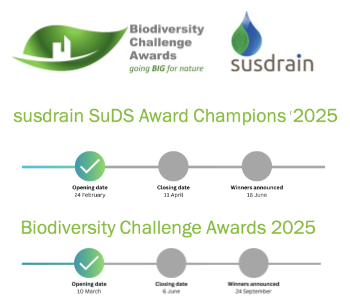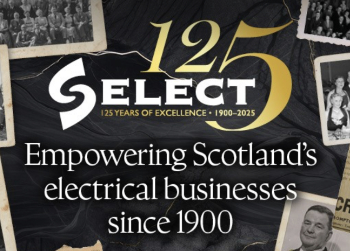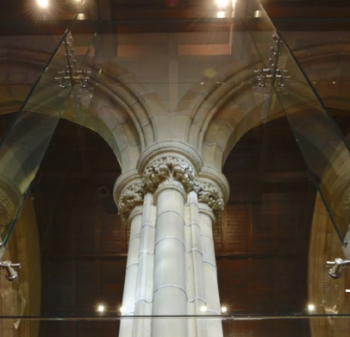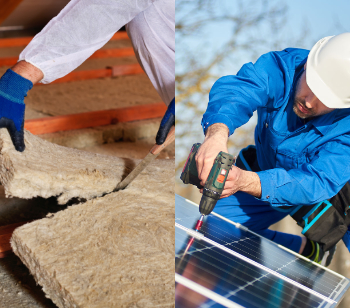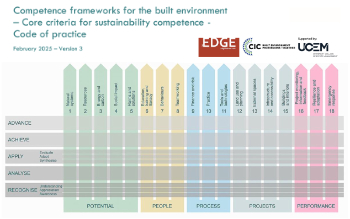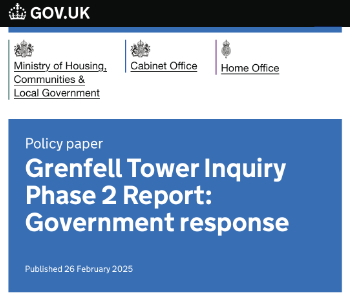European decarbonisation and heating technologies beyond 2021

|
[edit] Introduction
While the heating market has been stable for most of the last decade, 2020-2021 was a decisive point for the industry, not only because of the COVID-19 pandemic but also the push for Green Economic Recovery. In Europe, a target of carbon neutrality was set for 2050, and before that, a significant increase from 40% to 55% in the reduction of carbon emissions by 2030. The drive to decarbonisation is gathering pace with several distinct pathways to achieve it.
[edit] Electrification
Here, we are talking about electric-driven heat pumps; they are part of the “all electric” scenario for the future, which is supported by the extensive decarbonisation of electricity and the shift to all electric heating.
Hydronic heat pumps can offer strong value in terms of efficiency and their potential to lower CO2 emissions.
Issues include the impact on the electric grid and the price of electricity – on average three times that of gas. Heat pumps are ideal for new builds but can be difficult in older, poorly insulated buildings.
[edit] Green gas
This scenario outlines the increasing use of hydrogen – and alternative biogas – as a heating fuel.
Current projects trial the use of hydrogen with domestic boilers using a 20% / 80% mix of hydrogen and natural gas. The ambition is to increase that to 100% hydrogen in the long term.
Some heating companies have already developed so-called hydrogen-ready boilers. The claim is that it will be possible to switch from natural gas to hydrogen with minimal disruption, when the time is right. Several obstacles, including safety, availability, production of green hydrogen, price of fuel and products, will have to be overcome to make it a success.
[edit] District Heating and Cooling (DHC)
Heat networks are most suitable for cities and built-up areas like campuses and blocks of flats. The issue is that it is inherently inefficient to transfer hot water in a pipe compared to a boiler working in situ or an electric line.
The progress of fifth generation heat networks, whereby there is no central energy centre, rather using locally available waste heat and low temperature renewable energy in bodies of water or solar energy, is encouraging.
[edit] Hybrid systems
Anything that connects a traditional heating unit with a renewable energy source can be classified as a hybrid; at its simplest, it could be a small heat pump connected to a gas/biomass/green gas boiler, the latter for those cold days. This means there is no need to insulate the house or to upgrade the radiators.
With solar PV, the cost of heating can also be reduced.
[edit] Other electric: electric boilers or electric panels, air-to-air heat pumps
New buildings generally have a very low demand for heat. For an average modern home, a heating capacity of 2kW to 3Kw is adequate – a 10-fold reduction compared to an older house. Consequently, a heat pump is a good solution. But why even use a hydronic system with radiators at all?
Air-to-air heat pumps, or integrated solutions of heating, cooling and ventilation (with air-purification, too) is another alternative. Also, electric boilers or electric panels are viable solutions; they are attractive to developers, but less so to users due to the cost of heating.
We live in changing times, and in the HVAC industry two things are coming together: the two fundamental trends towards digitalisation and energy transition and companies that make heating equipment or air-conditioning are changing faster than ever before.
[edit] BSRIA Worldwide Market Intelligence study into European heating industry transition: 2020-2030
BSRIA will use its solid base of historical data combined with expert views on the developments in the heating, air conditioning and renewable markets to put forward some scenarios forecasting in which direction heating in our homes will go between now and 2030. The study will identify the winning technologies amongst boilers, heat pumps, heat interface units, air-to-air heat pumps and reversible air conditioning. It will also review the likely success of hybrid systems, widely seen as bridging the gap between traditional heating systems and renewables.
We will develop two scenarios, typically a hydrogen progress scenario and an electric and DHC scenario, to account for roadmaps for the banning of gas/oil, what governments will see as the more realistic propositions, what incentives or subsidies may apply, as well as building regulations, energy prices, demographic changes, cost of installation and running, product offering, etc.
The study will focus on Europe and initially the UK, France and Germany, with reports ready by late summer 2021. We will then expand our research to other important European markets.
For further information about this project, please contact:
- BSRIA UK (Europe): wmi@bsria.co.uk; +44 (0) 1344 465 540.
- BSRIA USA (Americas): sales@bsria.com; +1 312 753 6803.
- BSRIA China (China): bsria@bsria.com.cn; +86 10 6465 7707.
This article originally appeared on the BSIRA website under the headline, 'Decarbonisation is gathering pace as heating technologies compete in the main European markets'. It was published in May 2021.
--BSRIA
[edit] Related articles on Designing Buildings Wiki
- Boiler markets and the green recovery.
- BSRIA articles on Designing Buildings Wiki.
- Building heating systems.
- Carbon neutral buildings.
- Domestic heat pumps and the electricity supply system.
- European hydronic controls market 2019 - 2021.
- Global boiler market.
- Heating ventilation and air conditioning HVAC.
Featured articles and news
Sustainable Urban Drainage and Biodiversity
Awards for champions of these interconnected fields now open.
Microcosm of biodiversity in balconies and containers
Minor design adaptations for considerable biodiversity benefit.
CIOB student competitive construction challenge Ireland
Inspiring a new wave of Irish construction professionals.
Challenges of the net zero transition in Scotland
Skills shortage and ageing workforce hampering Scottish transition to net zero.
Private rental sector, living standards and fuel poverty
Report from the NRH in partnership with Impact on Urban Health.
.Cold chain condensing units market update
Tracking the evolution of commercial refrigeration unit markets.
Attending a conservation training course, personal account
The benefits of further learning for professsionals.
Restoring Alexander Pope's grotto
The only surviving part of his villa in Twickenham.
International Women's Day 8 March, 2025
Accelerating Action for For ALL Women and Girls: Rights. Equality. Empowerment.
Lack of construction careers advice threatens housing targets
CIOB warning on Government plans to accelerate housebuilding and development.
Shelter from the storm in Ukraine
Ukraine’s architects paving the path to recovery.
BSRIA market intelligence division key appointment
Lisa Wiltshire to lead rapidly growing Market Intelligence division.
A blueprint for construction’s sustainability efforts
Practical steps to achieve the United Nations Sustainable Development Goals.
Timber in Construction Roadmap
Ambitious plans from the Government to increase the use of timber in construction.
ECA digital series unveils road to net-zero.
Retrofit and Decarbonisation framework N9 launched
Aligned with LHCPG social value strategy and the Gold Standard.
Competence framework for sustainability
In the built environment launched by CIC and the Edge.
Institute of Roofing members welcomed into CIOB
IoR members transition to CIOB membership based on individual expertise and qualifications.
Join the Building Safety Linkedin group to stay up-to-date and join the debate.
Government responds to the final Grenfell Inquiry report
A with a brief summary with reactions to their response.








